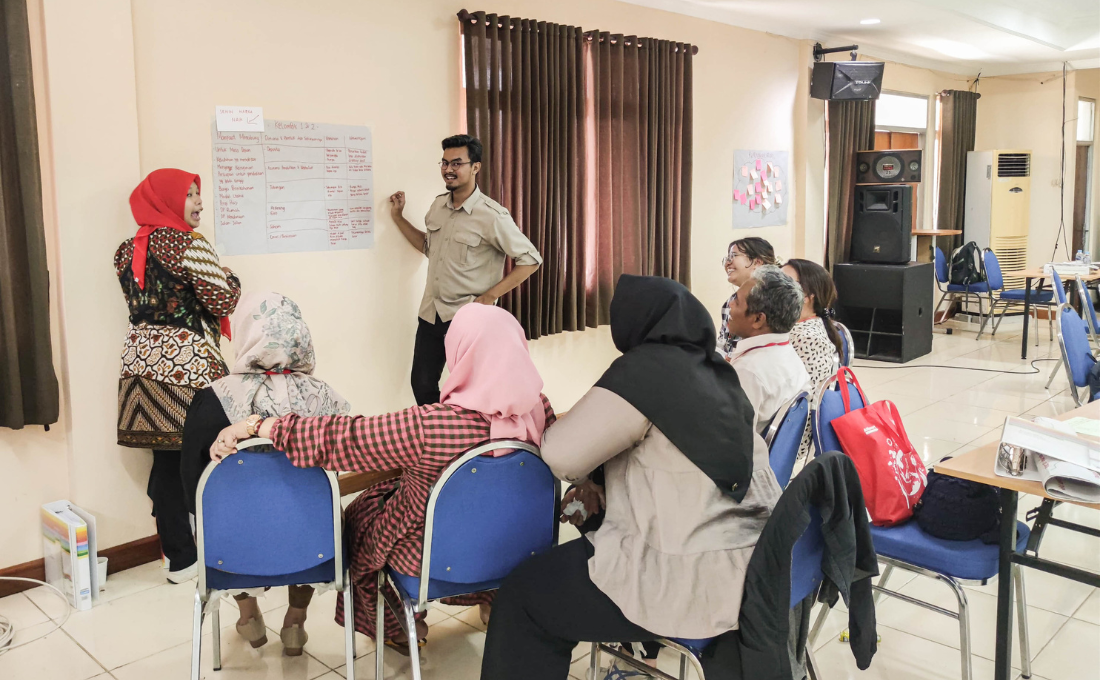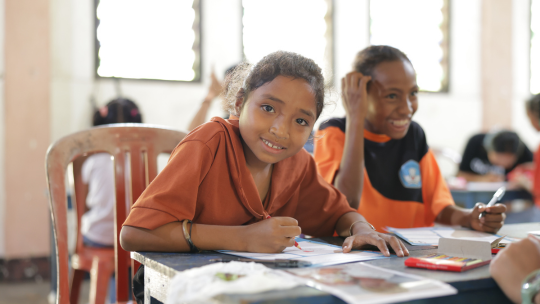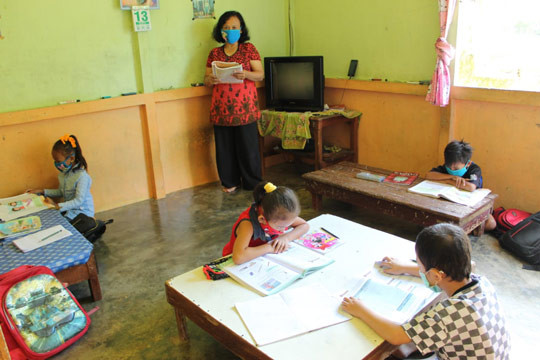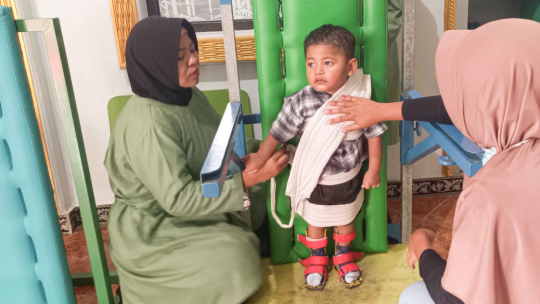Debriefing Session of the Lifeskills Modules for Social Workers in Jakarta

WVI as implementing partner of the Enhancing Social Rehabilitation Support for the Vulnerable Youth in Indonesia (STARLET) project together with PMC-KOICA consisting of World Vision Korea (WVK), Korea Institute for Development Strategy (KDS) and ReBach International conducted a Lifeskill Training of Trainers for social workers. This training is also in collaboration with the Jakarta Social Service and the Ministry of Social Affairs of the Republic of Indonesia.
The training was opened by the head of the Jakarta DJK Social Service, represented by the Secretary of the Service, Ari Sonjaya, S.Sos. This training is part of the development of youth education and capacity building for social workers working with children and adolescents. The participants received capacity building through the Lifeskill Module developed by WVI.
This activity was very useful for the social workers. Many new insights and skills were gained. Molina, one of the social workers, said: "For me, all the materials are interesting and add new insights or refresh what I have learned before. The most interesting for me is the material on self-management, because by learning this I understand myself better and learn to appreciate myself. What we have done in the centre so far, that we can survive so far, by doing our best to follow the activities and the rhythm of the centre, before maybe it was just considered a normal thing, part of life, so we forget that it is a special thing that we need to appreciate and thank ourselves for being strong so far".
The Lifeskill Module is designed for adolescents and young people. The module aims to equip them with basic life skills that will help them develop holistically and succeed in life. It also equips young people with the skills and knowledge they need to face life's challenges and become positively developed individuals.
There are four main contents in the module. The first is personal empowerment, where young people can understand self-development, communicate effectively and be resilient. The second is learning skills, where young people have the ability to think creatively, critically and problem-solve oriented. The third is employability, where young people are also prepared for the skills needed in the world of work, such as independence, discipline and entrepreneurship. The final skill is active citizenship, where young people can also play an active role as part of the citizenry, participating in the life of the state, respecting differences and having skills in empathy.
The module developed by WVI works with experts, especially psychologists, to develop this lifeskills material. There are 13 topics in this module and all of them have been trained directly to 39 social workers, as well as facilitators of children's forums, youth organisations and RPTRA administrators from Jatinegara who have a lot of contact with adolescents and young people. This ToT was carried out over a period of approximately three months and was followed by a Teaching Skills Training, which enabled participants to teach and train this Life Skills material to young people in their respective classes and groups.
Molina also found the Lifeskills module very easy to use. "I think the material on financial auditing for young people is very applicable, which turns out to be something we need ourselves. This material is not just teaching material," she said.
The same was said by Sugiyo, a participant from the centre supported by the Ministry of Social Affairs. "For teenagers it is very useful, one of them is that teenagers need to know the development of technology to prevent negative things. It is important to talk about juvenile delinquency and its consequences, about promiscuity and the use of illegal drugs. The material given to the participants needs to be used and also evaluated to see if the impact of the benefits is appropriate or not," he said.
Once the ToT was completed, WVI also involved the social workers in developing lesson plans to make the application more contextual. The lesson plans were developed in one of the social centres in Jakarta, which became the pilot centre for the STARLET project. A total of 63 lesson plans have been developed and are ready to be implemented by facilitators who will disseminate them to all young people in the centre.
The participants are also committed to applying and implementing what they have learned during the training. "The learning materials obtained in this ToT activity, both the Lifeskills module material, the teaching skills and the preparation of learning plans, are very useful in the application of daily social counselling activities, both within the orphanage and in the territory. In the future, at the territorial level, I plan to use some of the module materials for counselling activities for ODGJ beneficiaries at the Kemayoran District Social Information and Services Unit (UILS)," said Amalia, a social worker from the Central Jakarta Administrative City Social Service Tribe.
She added: "Easy-to-understand materials on self-management and resilience are needed to be given to UILS beneficiaries who still need help in regulating their emotions and developing good habits. In addition, within the centre, there is a plan to work with social counsellors and social workers to continue the mentoring of child mentors that we have been doing before this ToT activity".
Author: Niken Puspita (STARLET Project Manager)
Editor: Mariana Kurniawati (Communication Executive)



